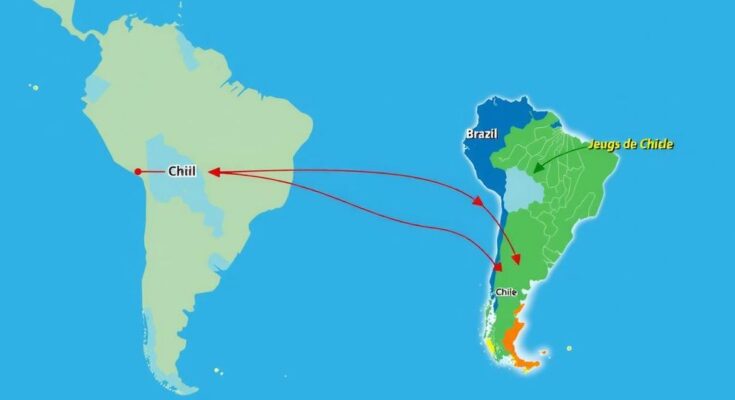Brazilian President Lula and Chilean President Boric condemned U.S. trade wars, focusing on South American unity during a press conference. They discussed expanding trade ties, announced new bilateral agreements, and emphasized a bi-oceanic corridor project. Boric accepted an invitation to attend the upcoming BRICS summit, further solidifying the partnership.
In a significant step towards regional collaboration, Brazilian President Luiz Inácio Lula da Silva and Chilean President Gabriel Boric have reasserted their commitment to multilateralism during a press conference on Tuesday. The focus was on condemning global trade wars and the protectionist policies of the United States. The leaders emphasized the need for stronger ties among South American nations, a sentiment echoed throughout the address.
Lula expressed concerns about Latin America’s technological development compared to advanced nations, suggesting U.S. policies play a substantial role in this disparity. Meanwhile, Boric noted Chile’s firm stand against what he called the “politicization of trade,” stating that his country aims for strategic independence in international relations. “We believe in friendship among South American countries and free trade that benefits our people,” he stated.
The partnership between Chile and Brazil has been growing, as Boric pointed out that trade now surpasses Chile’s dealings with many European countries. He highlighted opportunities for collaboration in various sectors, including investment, technology, transportation, and financial services, indicating a promising trajectory for future economic ties.
In addition to discussing trade, the leaders announced new bilateral agreements touching on defense, public security, agriculture, culture, and entrepreneurship. In a show of camaraderie, Boric accepted an invitation from Lula to participate in the upcoming BRICS summit in Rio de Janeiro, set for July 6-7.
A notable highlight was the emphasis on progress regarding a bi-oceanic corridor. This ambitious project aims to connect Brazil’s Atlantic coast with Chile’s Pacific ports via northern Argentina and Paraguay—serving as a testament to their deepening partnership, both politically and economically.
In summary, the recent collaboration between Brazil and Chile marks a pivotal moment in South American politics, with both leaders advocating against U.S. protectionism and emphasizing regional unity. Their renewed agreements and joint initiatives potentially pave the way for a stronger economic partnership, highlighted by the bi-oceanic corridor project. This growing relationship could significantly impact trade and technology in the region in the coming years.
Original Source: menafn.com




